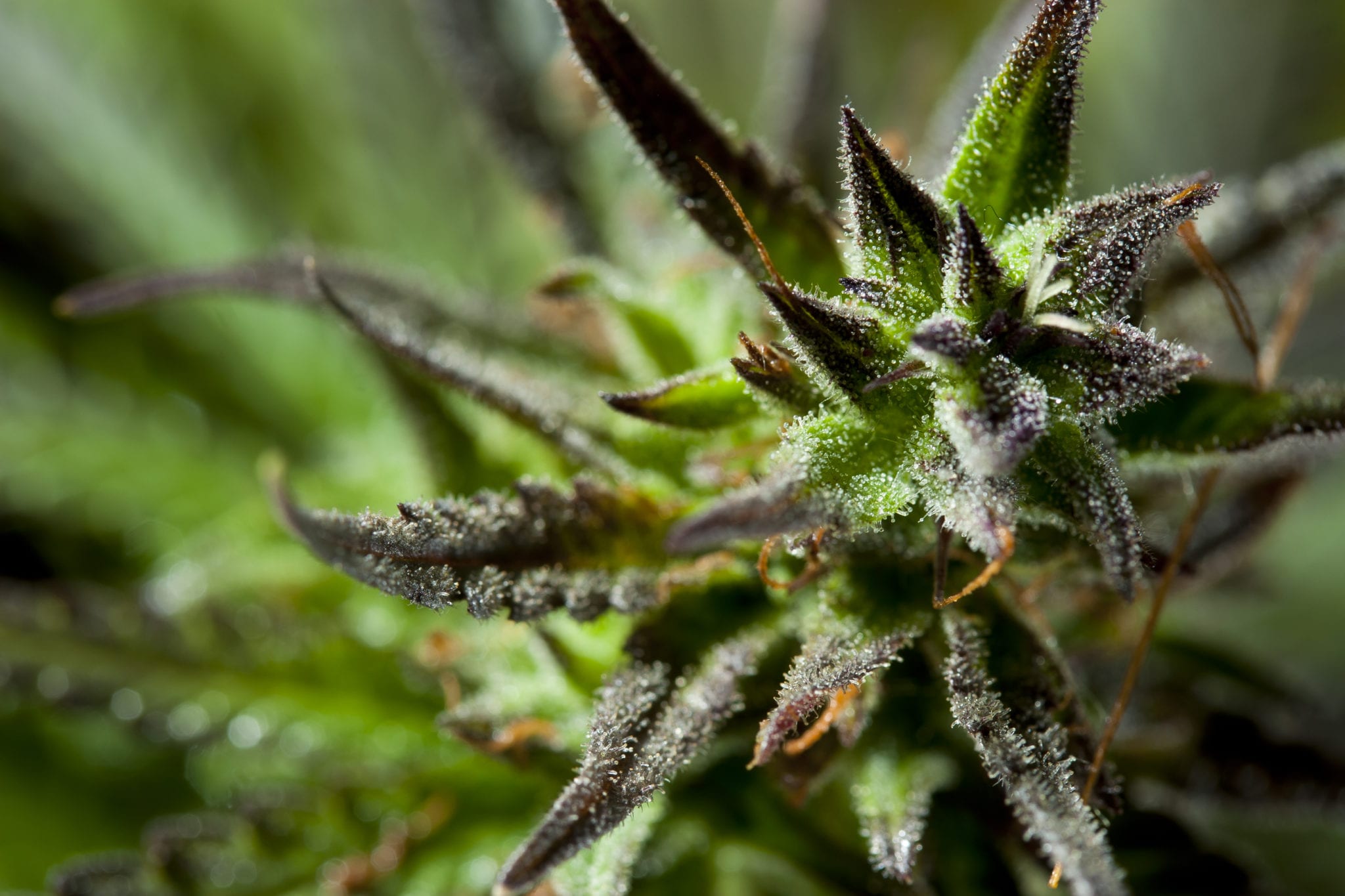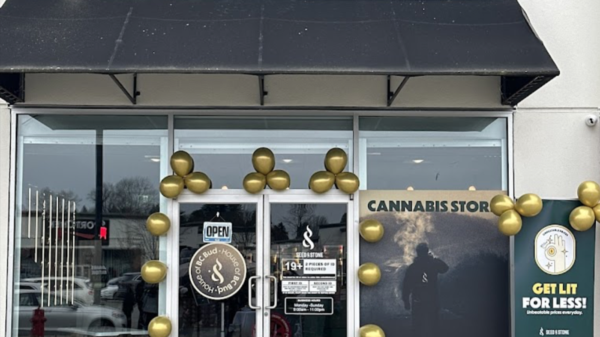As the illicit market continues to dominate Canada’s pot industry, one company is on a mission to teach provinces how craft cannabis can save the struggling legal regime.
B.C.-based processor Shelter announced last week the launch of its Craft Collective Division, an in-house service designed to assist and promote small farmers into the legal market.

“I want to be the guy who gets craft into the retail market,” Shelter’s Kyp Rowe says. Submitted photo
Kyp Rowe, the company’s lead for developing the new division, said illicit dealers are still thriving because legalization has been plagued with quality issues, inexperience, and an apparent deafness to consumer concerns.
In the third quarter 2019, just under $1 billion was spent on illicit weed while only $570 million was spent on legal cannabis, according to Statistics Canada.
Rowe said larger weed companies have been able to get away with selling mediocre products at higher price-points because provincial wholesalers are unaware and have no established method to measure quality.
“Most of these provincial guys are government workers they come from Best Buy as their last job. They don’t know the cannabis industry,” he said.
The 25-year legacy grower said he expects to hold meetings with provincial sales boards in the upcoming months to explain what craft is all about. He plans to present them with idea of using metrics and data to gauge cannabis quality, such as THC and terpene levels, to make them more informed buyers.
Update: A previous version of this article reported, based from a telephone interview with Rowe, that he has been a legacy cannabis grower for 30 years. However, he informed Mugglehead that he more accurately has 25 years of experience as a legacy cannabis grower.
Hand-crafted versus ‘garbage’ legal weed
Rowe said the idea of the collective was born out of a conversation with Shelter consultant Travis Lane and communications director Jamie Shaw. Combined, all three have over five decades of experience in B.C.’s legacy cannabis industry, and Rowe says that community needs to be brought into the legal fold.
Hey micro-cultvators, I have a question.
Do you care where your final retail price ends up?
I have been thinking a lot on this. I believe my product is at least as good as the most expensive product out there now.
I don't want my brand selling for $20+ per gram, though.
— Travis Lane – @beardedgreenly.bsky.social (@BeardedGreenly) February 29, 2020
Craft has to do with genetic selection, small-scale production, high-terpene value and rich cannabinoid profile, while not necessarily maximizing capacity and grams per square foot, Rowe explained.
While the Canopys and the Auroras have tried to grow “craft on scale,” Rowe says big weed has only been able to produce mid-tier quality.
“Once we get craft into the market and show everybody else the big company stuff that’s selling for $7 a gram is such garbage, then consumers wouldn’t mind paying $12 a gram for something that is so much better of an experience,” he said.
Despite his confidence in eventual change, Rowe said the road ahead is going to be long and arduous. He predicts it will take a decade before the legal industry fully supplants the underground market in terms of quality and being the regular choice for consumers.
According to the latest Statistics Canada data, only 29 per cent of Canadian pot users get all of their cannabis from a legal source.
To change that, Rowe wants to strip down barriers that exist for craft farmers, such Health Canada’s rules requiring prospective growers to build their facilities before applying for licensing. Stringent security requirements have also slowed the rollout of licences.

Kyp Rowe says craft growers take extra steps to produce higher quality cannabis. Photo via Habitat Craft Cannabis
Navigating provincial red tape
But Rowe said the biggest challenge for small cultivators comes after they get licensed and have to navigate the supply chain to get their product into consumer’s hands.
“It’s ridiculous because we’re dealing with a federal process and then we’re dealing with provincial distribution processes, which are all completely different depending on the province that you’re talking about,” he said. “Every province has it’s own set of rules.”
Because larger companies have lobbyists, piles of money and sales teams to pitch their products to provincial boards, they’ve enjoyed a first-mover advantage over smaller producers. But Shelter’s collective will help change that, Rowe said.
One of Rowe’s goals is to convince provincial wholesalers to remove the $10 a gram price cap they’ve set in place to allow the craft growers to make enough money to cover costs.
However, Brock University business professor Michael Armstrong says in 2020 producers need to zero in on price and offer products that can compete with the $5.73 a gram price for illicit weed.
Public education for consumers on how quality pot gives them a better bang for their buck is also high on the list of Shelter’s priorities.
“We need to get these guys in the market to show the general public what they don’t even know exists,” he said.
According to Aurora Cannabis (TSX: ACB), cheap weed — less than $9 a gram — makes up 17 per cent of legal Canadian sales as of December. Meanwhile, the market share for premium pot dropped from around 35 per cent to 17 per cent.
“As a craft market, we have to show the consumers what what the difference is,” Rowe said. “Because right now people are buying grass on price points, not on flavor profile or anything else.”
Ultimately, craft growers will have to keep their all-in cost production costs below $2 per gram to remain competitive and attract consumers, Rowe said.

Coho salmon fish tanks are used by Habitat Craft Cannabis to grow organic weed. Photo via Habitat
Shelter strikes deal with fish farming craft grower
The industry vet didn’t divulge a list of micro cultivators that Shelter is consulting with, but he did reveal one of his favourites: Habitat Craft Cannabis.
“These guys are the quintessential reason that craft excites me,” Rowe said. “Not only do they use a closed-off aquaponic certified-organic water system, they’re also using coho salmon to feed their plants.”
On Thursday, Shelter announced the first business deal under its Craft Collective banner with the central B.C. grower.
Under the 12-month agreement, Shelter’s newly acquired Agro Greens subsidiary will purchase between 250 to 550 kilograms of Habitat’s two cultivars that will be sold as Cake and Caviar. Shelter will process, package and distribute the products to the market under Habitat’s brand. The company says it’s also bringing its organic farmed salmon to market this year.
It’s exactly the type of deal Rowe said is needed to help transform Canada’s fledgling legal weed industry, and he’s hungry for more.
“It’s something I’m really passionate about. It’s an uphill battle and there’s no easy fixes here,” he said.
“Of course it’s going to be difficult. It’s not going to happen overnight.”
Read more: Company that grows salmon to grow cannabis to grow salmon gets organic certification
Read more: Craft cannabis collective Pasha Brands expects first harvest
Top image via Deposit Photos
jared@mugglehead.com
@JaredGnam














